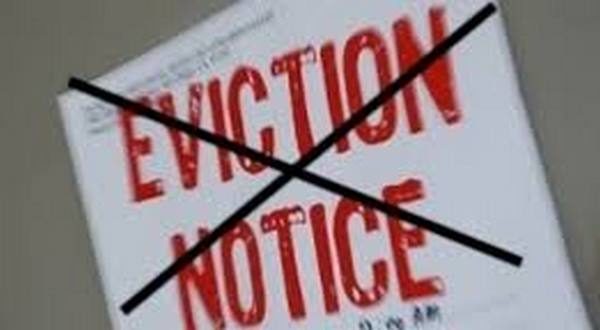
LITTLE ROCK, Ark. (AP) – Arkansas’ high court has ruled that evictions for nonpayment at rental properties covered by the federal government are temporarily prohibited in wake of the coronavirus outbreak.
The Arkansas Supreme Court’s decision on Tuesday bans evictions at properties backed by the Coronavirus Aid, Relief, and Economic Security Act until July 25, the Arkansas Democrat-Gazette reported. The ban also includes federally subsidized housing, rural voucher-program housing and housing financed through federally backed mortgages.
The CARES Act covers about 28% of renters nationally, according to the Congressional Research Service. About one-third of Arkansans rent property.
The federal law has been in effect since the end of March, but it has been hard to enforce because evictions were filed through court clerks who cannot practice law. But the state Supreme Court’s decision means the person filing the eviction is now responsible and could be penalized if they are not in accordance with the federal act, said Lynn Foster, a former professor at University of Arkansas at Little Rock William H. Bowen School of Law.
“It says, ‘Hey, landlords, if your property has anything to do with federal funding, you should not be filing an eviction,'” Foster said.
The ruling also requires anyone filing an eviction for nonpayment of rent to affirmatively plead that the property is not backed by the federal government.
“This temporary pleading requirement merely reflects the Act’s moratorium prohibiting the lessor of a covered dwelling from filing a legal action to recover the possession of the property for nonpayment,” according to the court order.
Associate Justices Shawn Womack and Rhonda Wood had a dissenting opinion.
“It exceeds our constitutional role within the scope of separation of powers, it takes action driven by emotion and not by actual data, and it puts the court in a position of favoring one party over the other prior to the establishment of any facts,” according to the joint dissent.
Attorney General Leslie Rutledge has affirmed that the ruling does not apply to anything but nonpayment of rent.
“I appreciate landlords who have worked with tenants suffering financially during these uncertain times; however, this should not prevent landlords from removing those who are destroying property and not impacted by the COVID19 crisis,” Rutledge’s statement read.
WebReadyTM Powered by WireReady® NSI










